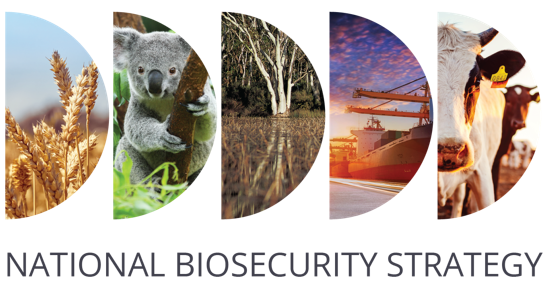Biosecurity Reform Update

Further to past updates IFCBAA calls for biosecurity reform and short term solutions, and Biosecurity Reform Advocacy Update, IFCBAA continues to work with the Department of Agriculture, Fisheries and Forestry (DAFF) via the Department’s Cargo Consultative Committee (DCCC) and bilaterally to deliver a biosecurity reform.
IFCBAA attended the recent DCCC meeting in Sydney on 13 July 2022 and again raised concerns regarding the delays in biosecurity assessment and inspections in particular VIC and NSW, as the extended delays have a commercial and financial impact on the importers. The biosecurity clearance delays also results in additional administration and costs for IFCBAA members to facilitate biosecurity clearance at the border on behalf of their import clients.
The DCCC Chair opened proceedings by outlining the machinery of government changes that had taken effect from 1 July 2022. This included elements from the previous DAWE portfolio transferring to a newly formed Department of Climate Change, Energy, the Environment and Water, and the reformation of DAFF led by a new Minister, Senator the Hon Murray Watt, and Secretary Andrew Metcalfe. The DAFF Biosecurity and Compliance Group is now led by Dr Chris Locke following Andrew Tongue’s retirement. DCCC members acknowledged the professionalism and pragmatism that Andrew Tongue brought to the role and his tireless work to transform and modernise the biosecurity system.
The DCCC Chair acknowledged industry’s concerns regarding current delays in biosecurity assessment and inspections. The Chair said, "While the department is doing all it can to address these delays, some causes are outside of its control. Nor is it possible to eliminate delays altogether due to increasing cargo volumes and multitude of biosecurity threats coming closer to our shores. DCCC members were reminded that there are steps industry can take, including increasing the use of virtual food label surveillance inspections, arrangements that would see them perform low risk activities rather than wait for a biosecurity officer, the Biosecurity Portal for booking inspections online, and the offer of inspections outside of standard business hours and on weekends where available”.
Discussion progressed to strategic trade related issues, including the need to consider digital solutions, and differentiated approaches to reduce regulatory burden and facilitate the legitimate movement of goods while not compromising biosecurity. Some of the initiatives include:
- Automated assessment of import documentation processes – SAC automation, Min Docs automation
- Biosecurity Portal - Self-service online portal will enable industry to view and manage all biosecurity transactions - inspection bookings, cancellations and transaction status – in a centralised portal.
- Proof of Concept - New Third Party Arrangements for Imported Cargo - To test whether equal or better biosecurity outcomes can be achieved by leveraging importer supply chain quality assurance systems.
- Rural tailgate inspections - New Approved Arrangement (Class 14.4) to allow industry to conduct tailgate inspections for containers destined for rural locations.
- Imported Food virtual inspections - industry to conducted in real time using Microsoft Teams virtual visual label inspections for eligible imported surveillance food.
- Port of Melbourne Led Trials - Design of end-to-end solution/s to transform the way biosecurity outcomes are achieved at ports, using the Port of Melbourne (PoM) and break bulk cargo (new cars) as a test case.
- Cargo Online Lodgement System Business to Government (COLS B2G) project. The project is progressing well, and DAFF commenced development of Application Programming Interface (API) gateways for the seven COLS services.
- BMSB 2021-22 season outcomes, requirements and changes for the upcoming season will be communicated to industry via the upcoming BMSB industry information sessions in early August.
DCCC members discussed options for future biosecurity funding arrangements to reduce system costs and incentivise behaviour. The department advised its intent to release an open discussion paper to ensure industry groups, including importers and exporters, and other stakeholders are given the opportunity to put forward concerns and ideas.
IFCBAA supports the former Agriculture Minister, David Littleproud calling for Labor Government to pick up the ball and run with the biosecurity funding strategy the Coalition was in the process of developing. Funding is required to modernize the biosecurity systems and is about putting a protective ring around Australia to safeguard industry as well as the rural and regional communities that depend on it.
IFCBAA encourages members and clients to start using the new biosecurity portal, virtual visual label inspections and booking inspections outside of standard business hours and on weekends where available, when the demand for inspections is high. It is also important to present the correct documentation as per the Minimum Documentation Requirements Policy and BICON conditions to avoid delays in re assessments.
Thanks for your understanding, ongoing patience, and cooperation as we continue to work with DAFF on the biosecurity reform.
IFCBAA will keep members informed of future developments along the biosecurity reform journey.
IFCBAA Team
28 July 2022